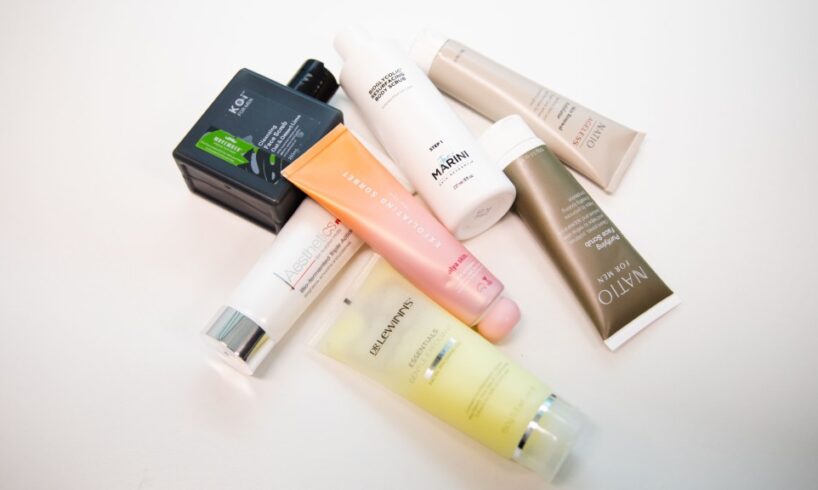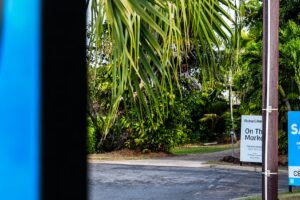
Six Australian companies have been ordered to stop selling skincare products that contain plastic microbeads, including supermarket giant Coles and well-known brands Natio and Dr LeWinn’s.
The New South Wales Environmental Protection Authority (EPA) issued compliance notices to the brands over the past 18 months as part of a broader crackdown on businesses that are skirting the state’s plastic bans.
The federal government adopted a policy in 2017 for businesses to voluntarily phase out the use of plastic microbeads in personal care products, as the tiny pieces of solid plastic cause damage to the natural environment, particularly waterways.
Related Article Block Placeholder
Article ID: 324223
The ingredient was later banned for use in rinse-off personal care products in NSW in 2022, and in the Australian Capital Territory in 2023, followed by similar bans in Western Australia and Queensland.
However, plastic microbeads are still used in skincare products, usually as an exfoliant.
Smarter business news. Straight to your inbox.
For startup founders, small businesses and leaders. Build sharper instincts and better strategy by learning from Australia’s smartest business minds. Sign up for free.
By continuing, you agree to our Terms & Conditions and Privacy Policy.
On Monday, the EPA said it has issued compliance notices to six companies, in relation to the sale of the following nine products in NSW:
Aesthetics Bio Fermented Triple Action Scrub, made by Aesthetics Skincare
KOi For Men Cleansing Face Scrub Oat & Desert Lime, made by Coles
Alya Skin Pomegranate Exfoliator Facial Scrub and Exfoliating Sorbet, made by Frostbland Pty Ltd
Jan Marini Bioglycolic Resurfacing Body Scrub and Jan Marini Cranberry Orange Exfoliator, made by JMSR Australia
Dr LeWinn’s Essentials Gentle Exfoliant Weekly Facial Polishing Gel, made by McPherson’s Consumer Products
Natio Men’s Purifying Face Scrub and Natio Ageless Skin Renewal Exfoliator, made by Natio
While the EPA said the companies responsible for these products acted quickly to remove them from sale, at least one of the products was still available from a third-party online retailer at the time of publication.
The Alya Skin Pomegranate Exfoliator Facial Scrub was listed as available on Kogan.com this morning, including for delivery to addresses in Sydney. The same product was also listed as available from the Dick Smith online store, which is operated by Kogan.
The Ayla Skin product still appears available from Kogan.com (November 3, 2025). Source: Private Media
When contacted by SmartCompany, a spokesperson for Kogan said it withdrew the product from sale following this news from the EPA and an audit is being done across other products.
“Kogan takes product safety and compliance seriously and works to ensure all items meet the minimum requirements under Australian skincare legislation,” they added.
SmartCompany has also contacted both Alya Skin for comment.
The Jan Marini body scrub still appears to be available outside of NSW, as does Natio’s face scrub for men.
Coles said it acted immediately once it was notified by the EPA.
“Following our review of the ingredient identified in the notice, we removed the product from sale in all stores nationally,” a Coles spokesperson told SmartCompany.
“We have since updated our policies to ensure it is not included in any own brand products again.”
A spokesperson for Aesthetics Skincare confirmed to SmartCompany that the company’s Aesthetics Rx® product range does not contain microbeads and is fully compliant with environmental regulations.
The company says it took immediate action when contacted by the EPA in April 2024 in relation to its product.
“All sales of the affected product were immediately suspended, a voluntary recall was undertaken, and all recalled and existing inventory securely destroyed,” the spokesperson said.
“The NSW EPA commended our proactive response, particularly noting that our voluntary trade recall exceeded their requirements.
“We successfully reformulated the product in June 2024 using approved Jojoba Esters as the exfoliant component. The reformulated product has been available in market since October 2024 and meets all regulatory requirements.”
Similarly, a spokesperson for McPherson’s Consumer Products also confirmed the company’s product was immediately removed from all sales and distribution channels.
“The product has been reformulated and was re-launched in the second half of 2024 and does not include the ingredient in question,” they added.
SmartCompany has also contacted Frostbland, JMSR Australia, and Natio.
Microbeads “don’t belong in skincare or our waterways”: EPA
Related Article Block Placeholder
Article ID: 285573
The EPA is one of only a few regulators around the world to take enforcement action against the use of plastic microbeads in personal care products.
Failure to comply with an EPA compliance notice that includes a direction to stop selling a product carries maximum penalties for wholesalers, manufacturers and distributors of up to $550,000. Companies can also be fined $55,000 for each additional day the offence continues.
The microbeads under the microscope. Source: NSW Environment Protection Authority
Microbeads are often made from plastics such as polyethylene (PE), polyurethane (PU), polypropylene (PP), polylactic acid (PLA), cellulose acetate, polymethyl methacrylate (PMMA) and acrylates copolymers.
Wastewater treatment systems can’t capture most types of microbeads, which means they can contaminate rivers, creeks, lakes and oceans, and once released, they absorb pollutants and can enter the food chain.
These small particles cause significant environmental damage, said NSW EPA CEO Tony Chappel.
“Microbeads don’t belong in skincare or our waterways — they can threaten marine life and people’s health,” he said in a statement on Monday.
“In several cases, the particles were made of bioplastics such as polylactic acid (PLA) and cellulose acetate. Although these ingredients aren’t derived from fossil fuels, they don’t readily break down in the environment and are still defined as plastic under the Plastic Reduction and Circular Economy Act 2021 (PRCE Act).”
Chappel highlighted the swift action of the companies in question to remove stock from shelves, including some that did so before the required timeline, as well as retailers, including Chemist Warehouse and Priceline, which also worked with the EPA on the matter.
“These actions show our legislation is working to protect the environment and hold suppliers accountable for what they sell,” he said.
The EPA said it is continuing to monitor and enforce NSW’s plastics bans and has more investigations underway.
Products suspected of containing plastic microbeads in NSW can be reported online here.
This article was updated on Monday, November 3, 2025, to include statements from Kogan and McPherson’s Consumer Products.





